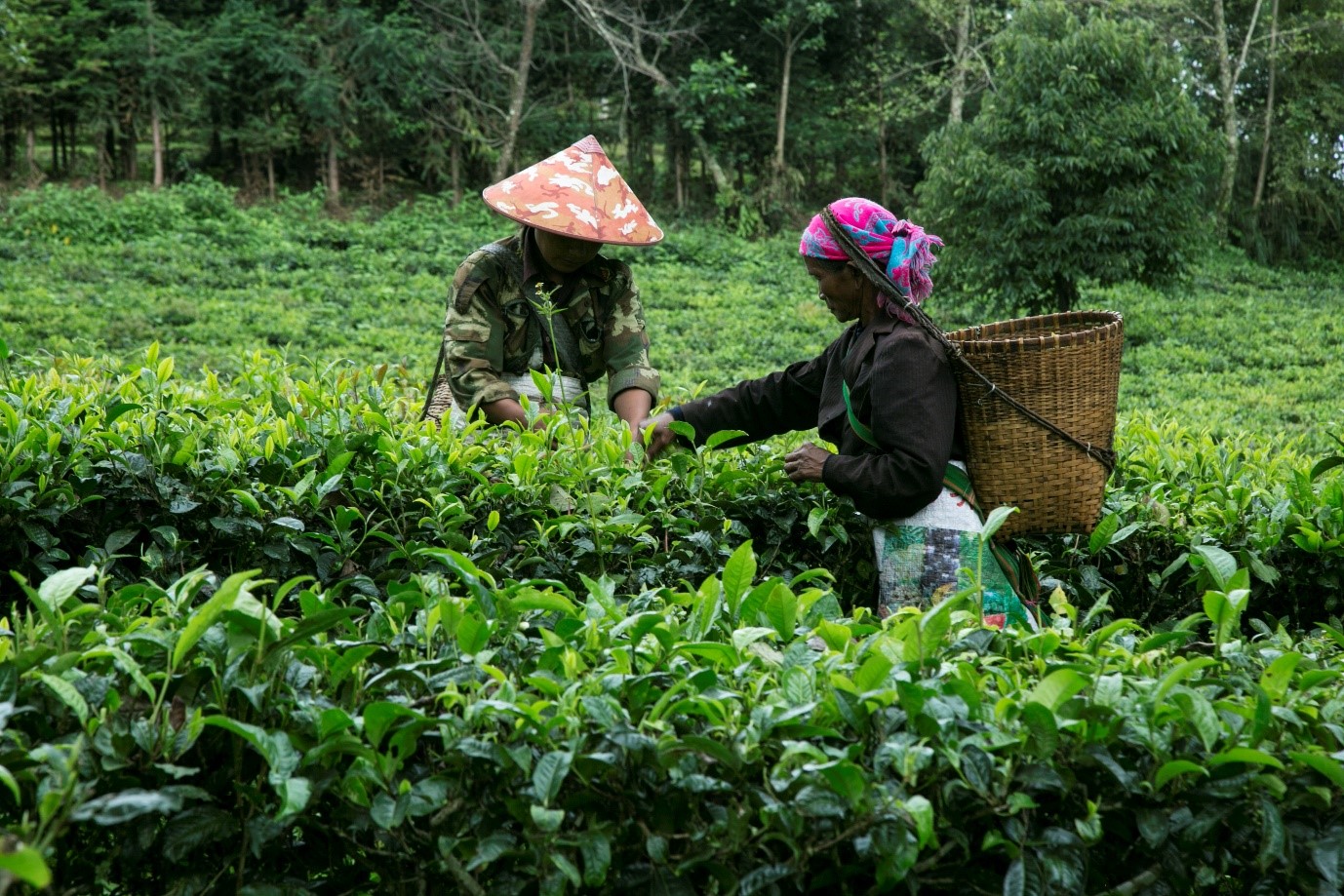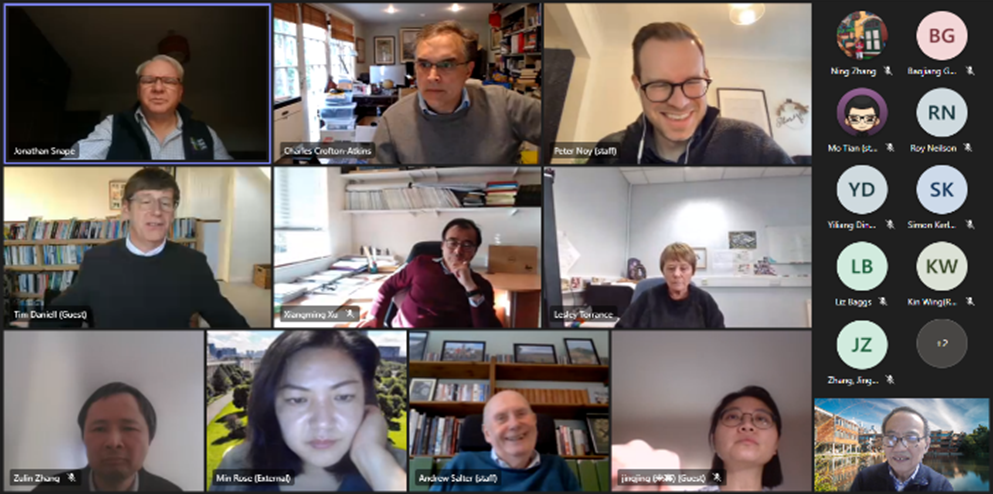
December 6, 2022, by aczjb1
Coping with global challenges by enhancing UK-China cooperation in agricultural research and innovation – Dr Bin Wu
In the context of global challenges in climate change, food security and zero carbon campaign, UK-China research and innovation cooperation in agricultural transitions and sustainability becomes increasingly important. With funding support from the Foreign, Commonwealth & Development Office (FCDO), a workshop was held online on 28 November 2022 with the theme: UK-China cooperation in agricultural and innovation. The half-day event aimed to review achievements and challenges of bilateral cooperation in the past, develop collective voices and suggest policy recommendations for future cooperation.
The workshop was jointly organised by the University of Nottingham, the James Hutton Institute, the N8 AgriFood Group, and the Consortium of Future Rural Studies (CFRS). It attracted a total of 30 attendees, including colleagues from research institutes, universities, agribusiness companies, representatives from UKRI and the British Embassy Beijing. In addition to keynote speeches, four parallel group discussions were arranged through two sessions for attendees to share their experiences and good practices, and discuss priorities and mechanisms recommended to UKRI and Chinese counterparts.
Three keynote speeches provided a big picture on achievements, challenges and opportunities of bilateral cooperation. By questioning “why is bilateral cooperation important for both sides?”, Professor Steven Banwart, Dean for Global Development and Director of the Global Food and Environment Institute at Leeds University, emphasised the importance of China in developing a knowledge equality network across the Global North and South to tackle three linked global challenges: food security, environmental sustainability, and dietary health.
Focusing on the interconnection between food security and environmental security, Dr Jonathan Snape, Head of the James Hutton Institute, explained “global challenges and global solutions” based upon his observation and experience of business engagement in China’s potato sector, the largest country in potato production in the world. Given the fact that nearly half the world’s smallholder farmers live in China, Dr. Bin Wu, founder and acting director of the CFRS, and PI of this project, highlighted bilateral cooperation to develop a global-local knowledge system for better understanding on local challenges and good practices in the Global South.
A number of ideas emerged from the group discussions. It was agreed that the most important asset of bilateral cooperation is mutual trust between British and Chinese academics, a sound foundation for long term cooperation. This has occurred over the last two decades through a bottom-up process starting with PhD students and ECRs training, leading to good questions, innovative ideas and feasible pathways of research design and implementation in rural China. The participation of social scientists and industrial companies were emphasised, as these play a critical role in mediating between researchers, farmers and external markets. A potential area to be developed is the interconnection between agricultural research and internationalisation of higher education in order to better use relevant resources for bilateral research collaboration.
A number of barriers to bilateral cooperation were identified. It is a common concern that alternative mechanisms to replace the Newton Fund must be found as China is no longer on the ODA listed countries. Another issue is the sharing or transferring of research data (such as bio-samples) or third-party information (e.g. geographic information) for joint analysis. There needs to be a balance between publications and social impact in the future to address local challenges and the needs of small farmers and rural communities through multiple stakeholders’ participation in bilateral project design and delivery.
Given the importance of China in addressing global challenges and impact on the Global South, a few policy recommendations arose for new funding mechanisms, including:
- Integrated programmes across UKRI, DIT, DEFRA and FCDO to bring together resources and opportunities to maximise impacts to not only two countries but also agricultural trainsition and sustainability in the Global South
- Programmes for the participation of social scientists and multiple stakeholders, especially companies to address local challenges and good practices related to smallholder farmers in poor areas of China
- More funding opportunities for British scholars, ECRs and research students to visit and conduct emprical studies in China to better understand the complexity, challenges, good practices and pathways of bilateral cooperation and social impact
- Matched fund with Chinese Scholarship Council (CSC) overseas scholarship programme to support joint research and training of Chinese visiting scholars and PhD students in the UK
- Support new consortia to bring together natural and social scientists with industry via regular workshops or webinars to share good practices and faciliate communication and cooperation, internally (among British institutions) and externally (with Chinese partners) for bilateral cooperation.
A key message from this workshop came from Professor Andrew Salter, Director of the Future Food Beacon at the University of Nottingham, “we need to work together to cope with global challenges as well as challenges facing the two countries”. This is a different view from the public one dominated by negative images. This event illustrates the great potential, opportunities and strong demand to enhance bilteral cooperation in agricultural research and innovation in the future.
No comments yet, fill out a comment to be the first



Leave a Reply